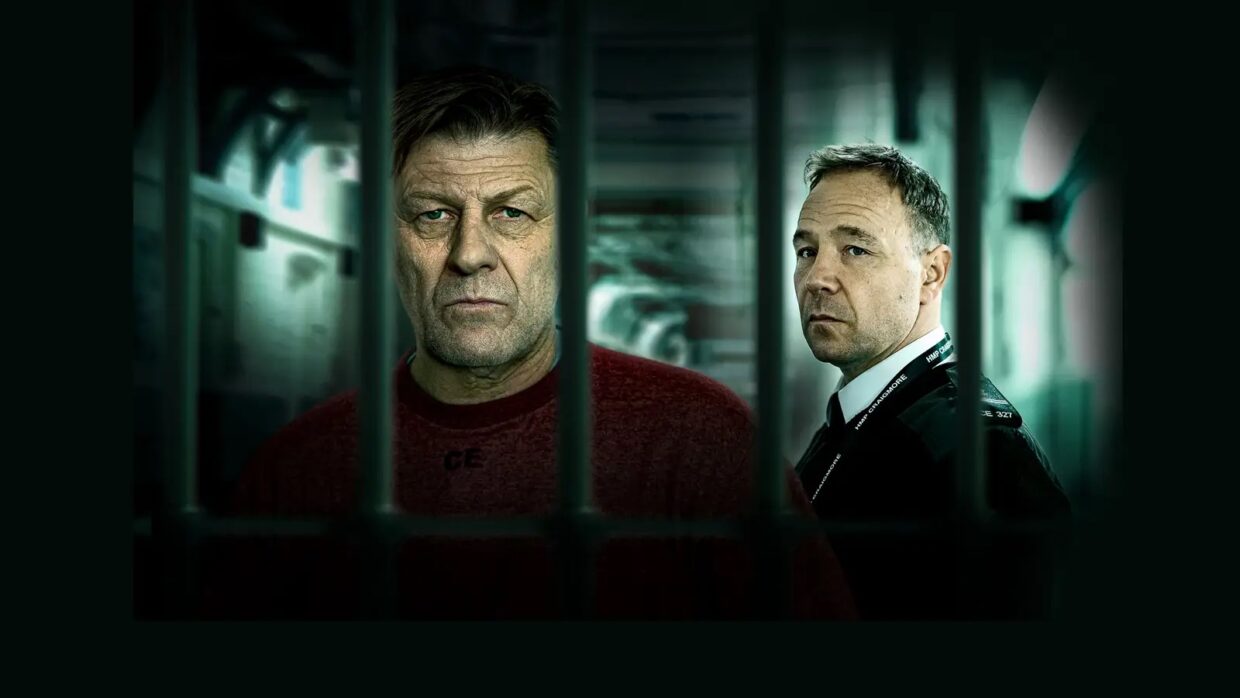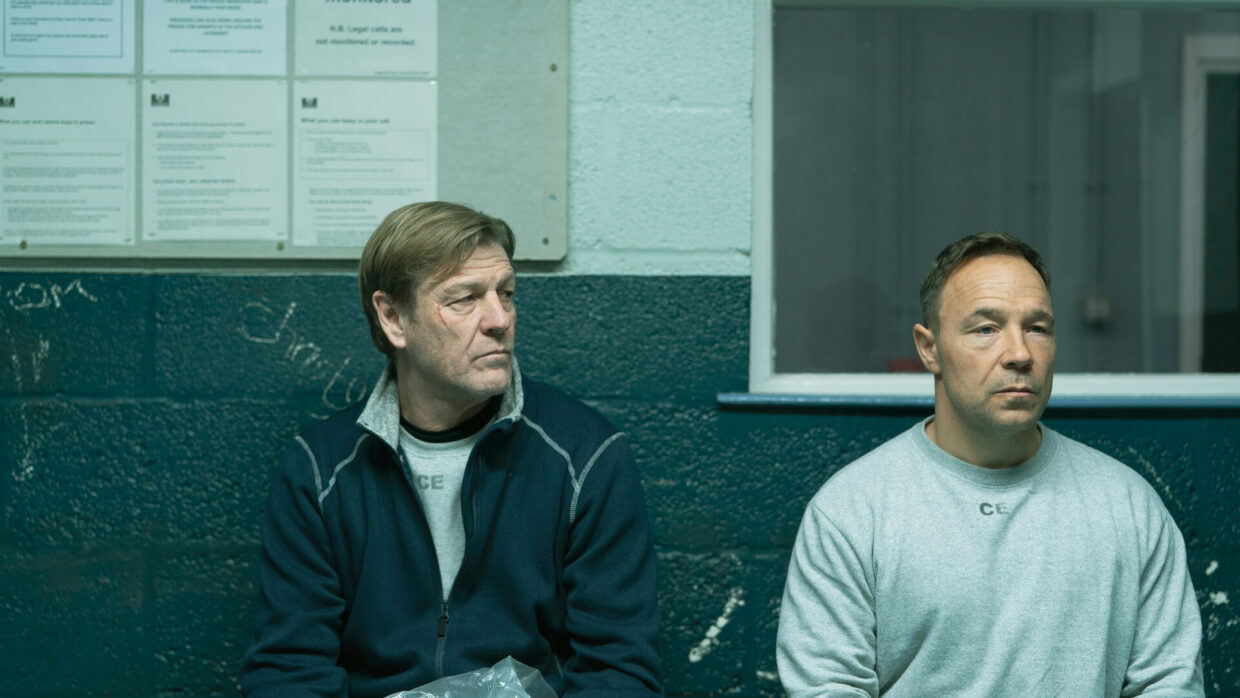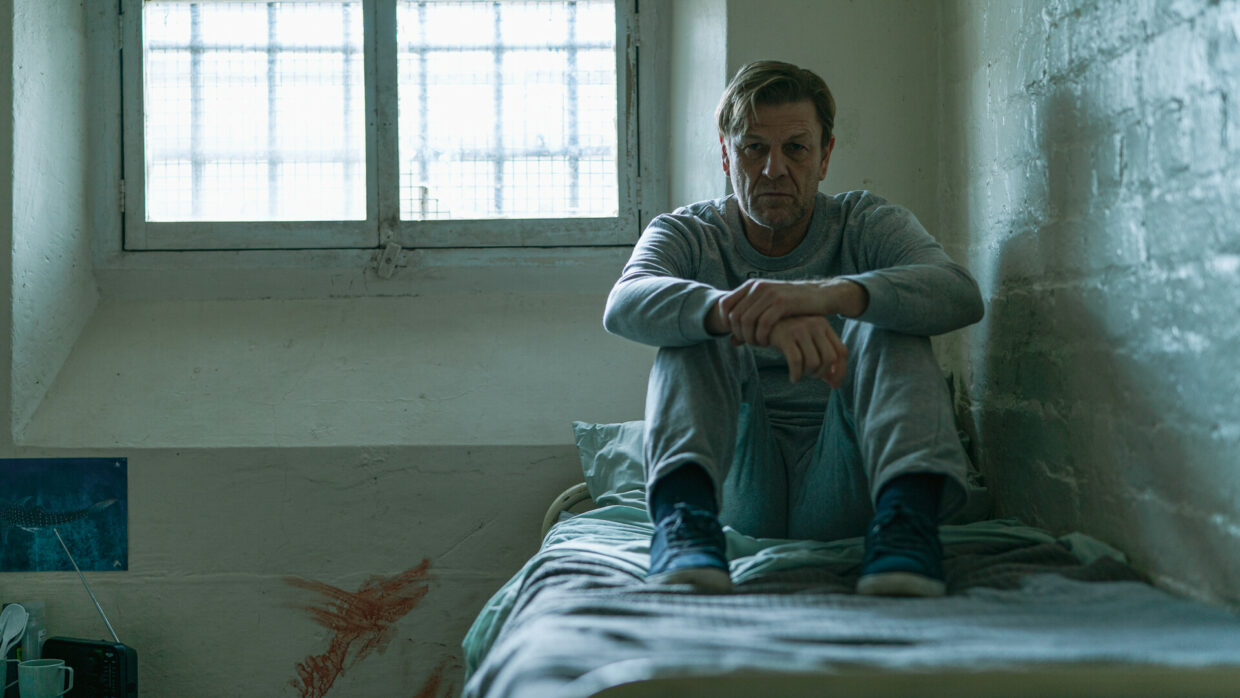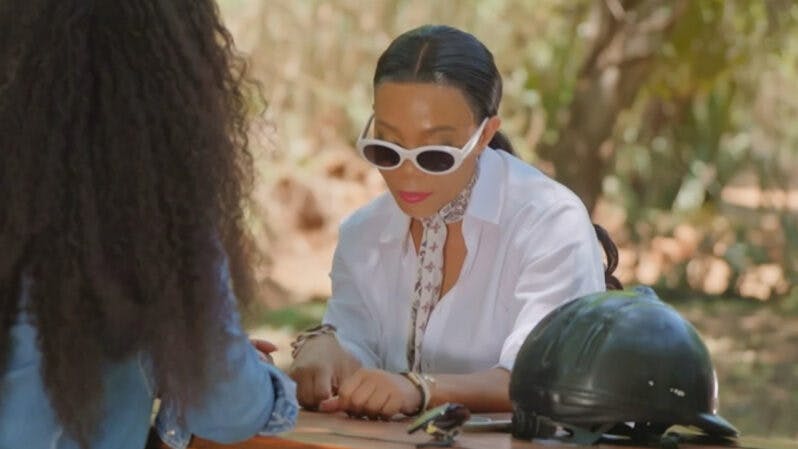
By Bianca Coleman18 July 2022
Sean Bean is a man trapped in a broken system in Time
Fun fact: Sean Bean has portrayed some two dozen on-screen deaths in his nearly 40-year career. Despite this, he’s still not on the list of the top 10 actors with the most – not even close. That honour goes to Christopher Lee (70), a record unlikely to be beaten.
Bean, whose name was originally spelled “Shaun” (not nearly as good to read and say in your head as Sean because if you don’t make them rhyme, what is the point?) does not die in the BBC One drama series Time, but there are moments when his character Mark Cobden probably wishes he would.
Time recently won BAFTAs for Best Miniseries and Best Actor for Bean, both awards well deserved. Written by Jimmy McGovern, the four-episode series is remarkably understated but shunning the melodramatic reinforces its impact. Much of this has to do with Bean’s performance.
He plays Mark Cobden, a middle-aged alcoholic teacher who accidentally kills a man one night on the way home from the pub. Cobden immediately turns himself in, pleads guilty and is sentenced to four years in prison, a harsh new world that he must learn to navigate. There he must fit into the hierarchy, while being bullied by young men who absolutely belong behind bars. His innate empathy and compassion prove harrowing with cell mates who are deeply troubled, but serves him well (and ultimately saves his life) when he begins to teach an inmate how to read and write.

On the flip side is prison officer Eric McNally, played by Stephen Graham (Al Capone in Boardwalk Empire). McNally is tough but fair, and doing the best he can. His son is incarcerated in another prison, and the criminals in his nick know this and use his safety as a blackmailing tool. What’s a father to do? It’s heartbreaking, as are the consequences. He was nominated for a 2022 BAFTA for Best Supporting Actor for this role.
According to Radio Times, McGovern revealed that Time was written with Sean Bean and Stephen Graham in mind. “They’ve got faces you’d die for, you know?” he said. “Full of life; full of compassion and humanity. I think if you’re going to write about a prison, that’s the kind of thing you need, isn’t it? Compassion, humanity, experience – all in the lines of those faces.”
Sean Bean’s five most expressive moments in Time

It’s Bean’s face that drives not only his performance but the entire series. So much is conveyed in his expressions, and micro expressions, often without him saying a word, in gut-wrenching scenes. It’s a script brought to life with exceptional acting and directing. Here are some of those scenes.
In episode one, Mark meets his deeply disturbed cellmate, who cuts himself excessively to feel better. It’s like Mark drinking vodka, he tells him. McNally later admits to the young man’s mother that he should have been in a mental institution, not prison. But there wasn’t any space for him where he would have received the help he so desperately needed.
In episode two, Mark’s wife Alicia (Nadine Marshall) comes to visit, to tell him face to face she wants a divorce, although when he first sees her, his initial reaction is “what’s wrong? Is it Tom?” (their son). Concern gives way to hope, but then she tells him why she is there. He understands, given the circumstances, but why now, he asks. “Because I don’t want to be married to you a second longer than I have to,” she replies. Mark must face that he is being replaced in the lives of Alicia and Tom.
In episode three, the bullying cranks up several notches and Mark is jumped by three blokes who threaten to set his feet on fire. It’s terrifying. It’s the catalyst for Mark to finally try to fight back. This sees him owing a favour to someone influential, which will be called in later, and will almost get him killed.
Also in episode three, someone close to Mark dies. He’d refused to see that person when they came to visit, on account of having been beaten up and not wanting them to see him looking that way. He almost gets to attend the funeral but after an incident in his cell, it’s called off.

In episode four, Mark is allowed out of prison on his own to attend and speak at a conference about crime and punishment – to tell his story. This is where we learn more about who Mark was, and the man he has become. Despite the hardships of prison life, he is ultimately one of the success stories, emerging better and stronger than before, having served not only his time but having experienced genuine remorse.
“The performances of Bean and Graham are, even though we have come to expect brilliance from them both, astonishing. So, too, are those from everyone in smaller roles, none of which is underwritten or sketchy, and who thicken the drama into something more profoundly moving and enraging at every turn. Time well spent,” says The Guardian (very clever, we see what you did there).
Time will return for a second season but rein in your excitement; Bean and Graham will not be in it, and it will be set in a women’s prison.
The Roast of Minnie Dlamini: The roast everyone's been waiting on
Empini, coming soon
More Mzansi gold

The Mommy Club Season 2 Episode 10 recap: Getting to the bottom of it
In episode 10 of The Mommy Club S2, Hermajesty and Mrs Sande go head-to-head and Nozipho confides in Mrs Mops. New episodes land every Monday on Showmax.

The Real Housewives of Durban S4: Nonku and Slee’s friendship is dead and buried
In the finale episode of The Real Housewives of Durban S4, all is laid on the table at the ladies’ dinner. All episodes are now streaming on Showmax.

MaBlerh to host The Real Housewives of Durban reunion for the second year in a row
MaBlerh to host The Real Housewives of Durban reunion for the second year in a row. The two-part reunion will stream on 15 May and 22 May 2024.

Your initiation into the cool, chaotic world of Wyfie
Feel like we’re almost at midterms but you stopped going to class after you skipped a couple of lectures? Let’s swot up on Episodes 1-24 of Showmax Original Wyfie.
